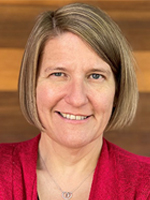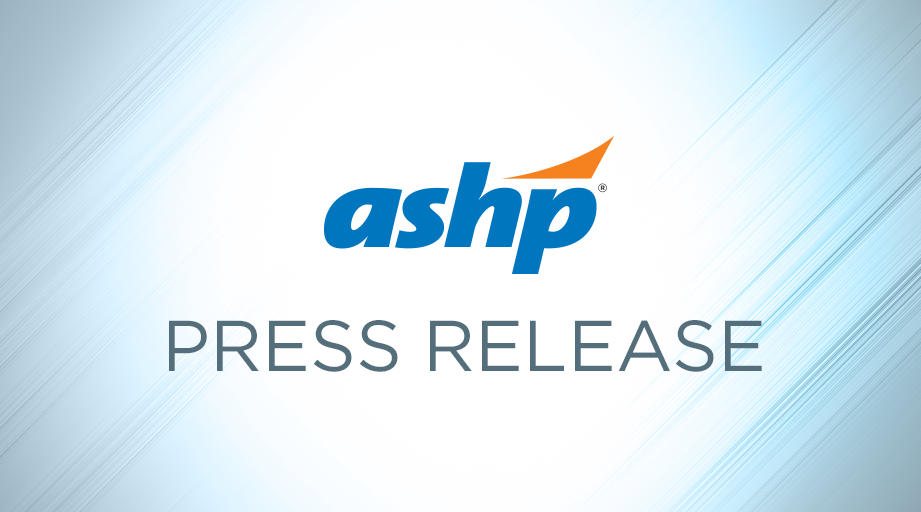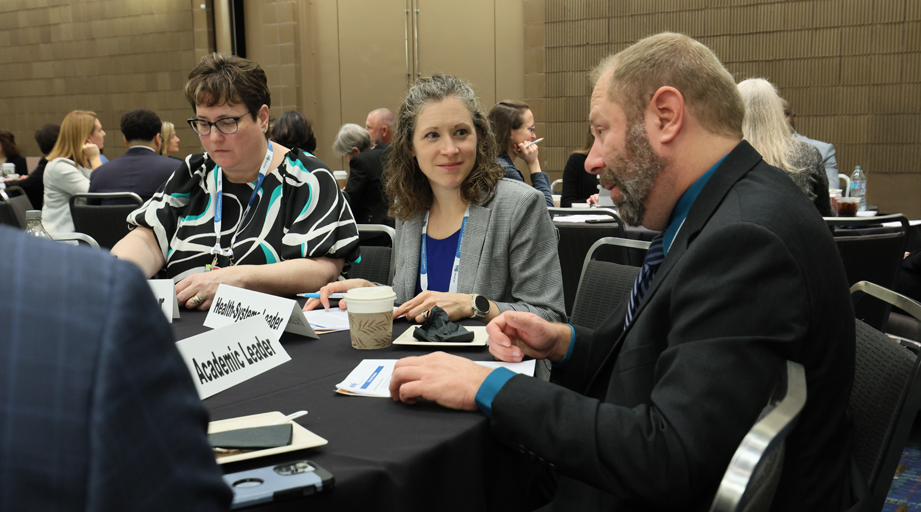

Karen Gunning
When Karen M. Gunning joined the University of Utah pharmacy department in 1998, she didn’t plan to specialize in women’s health.
“I was hired on the same day as a man. And they weren’t going to give him women’s health to teach, so they gave it to me,” Gunning said. “That’s how I started. And now I teach men’s and women’s health — or what we now call sex and gender health.”
She has no regrets about taking this career path.
“I love it,” Gunning said. “I have some of the most amazing discussions about things like menopause and osteoporosis, because women want to talk. I think all patients really want that. And I love it when a patient feels more confident in their decision-making because we have a conversation they’ve never been able to have before.”
Gunning, who is now professor, associate dean, and family medicine clinical pharmacist at the University of Utah, is a featured speaker at Sunday’s session Women’s Health and Gender Affirming Care: Hot Topics for Pharmacists at the 2023 Summer Meetings & Exhibition. She was interviewed about the session in advance of the meeting. An edited transcript of the conversation follows.
ASHP: What are the hottest topics you see in your practice today?
Gunning: Contraception, menopause, and gender-affirming care are probably the biggest ones.
About contraception — I was recently in Indiana, which had just passed pharmacist-provided contraception. While I think most pharmacists have learned about contraception, it has become a pharmacist-managed condition and a service, and pharmacists are seeking to refine their skills. And with the Food and Drug Administration considering over-the-counter progestin-only oral contraceptive pills, pharmacists everywhere need to be ready to contribute to that increased access. I think it’s going to be an exciting time.
Access to contraception is really a concern for both patients and providers now. With changes in federal and state laws, I think there’s significant tension and anxiety about whether contraception options will remain accessible to women. That’s one of the reasons why pharmacists’ access is so exciting, because it really increases the ability of patients to meet their personal family planning needs.
For menopause, is the hot topic the treatment of menopausal symptoms, or general care of women at menopause?
It’s menopausal symptoms, like hot flashes, vaginal dryness. When people are seeking care for menopausal symptoms, there’s always an opportunity to provide care for preventive health needs and identification and treatment of any other chronic medical conditions. But that topic would need a whole separate educational session.
Talking about menopausal symptoms is important, because women are seeking alternative therapies with undocumented safety. So, telling women we can safely and effectively treat their hot flashes and vaginal dryness is really important. And ensuring that there’s access to treatments, because the alternative is a lot of products that have not been rigorously tested for safety and efficacy.
What prompted your clinical team to actively support gender-affirming care?
About eight years ago, we really saw a need to provide better care to gender-diverse people in our community. More people are identifying as transgender or nonbinary, and they’re seeking information — including information about gender-affirming care and particularly medications. But this population faces barriers to care, including a general lack of provider education in medical, pharmacy, health sciences training about even the basics of therapeutics for gender-affirming care. Many clinicians did not learn this in school.
What are the biggest misconceptions clinicians have about gender-affirming care?
One of the things that’s really hard for clinicians is, if a person identifies as transgender, there’s a whole continuum of drug and nondrug treatments that the patient may choose. A transgender person may decide not to go on hormones. If they are on hormones, they may have preferences for the type, the quantity, the goals of those hormones. When treating someone with hypertension, we say, “This is your goal,” and we treat to that goal. Gender-affirming care is different because a person’s goals may not involve medications at all. They may solely involve changes in dress, in speech. There’s a real diversity of treatment options.
We should always ask our patients their treatment goal. But our patients should not be teaching us the therapeutics. We should know the therapeutics and then be able to have a conversation with patients about their goals.
How can you counter pharmacists’ misconceptions about gender-affirming care?
I think one of the most helpful things is for pharmacists to speak with other pharmacists who have worked with and assisted patients that are seeking gender-affirming care. Because it is a growing science. There’s a growing amount of evidence, but there’s really no guideline that tells you exactly what to do. And pharmacists really love guidelines. For more general guidance, there’s a document for pharmacists from the Human Rights Campaign Foundation and the American Pharmacists Association that’s really helpful.
What would you say to a pharmacist who says, “I don’t have any gender-diverse patients, so I don’t need to learn about them?”
I’d say you have seen them, but you have not recognized that they are gender diverse. And even if your practice isn’t providing gender-affirming care, most ambulatory care pharmacists see people with conditions like diabetes. So, I’d want them to think about how they can provide the care that we provide normally in chronic disease management and have that care be inclusive for gender-diverse people.
What are the biggest challenges your patients bring up with respect to starting and continuing gender-affirming care?
Pharmacy insurance issues, and pharmacies that could be better at being inclusive. Pharmacy needs to do better about not misnaming or misgendering patients and avoiding terms like ma’am and sir. And some of us are victims, in a way, of computer systems that don’t have a process to help us call patients by the name that they prefer. And there is so much unsubstantiated information that patients find on the internet about what treatments their doctors should be using. One of my residents got an ASHP Residency Project grant to talk to patients and do a qualitative study on this. The patients had a hard time identifying what is quality information and what is not. But they really wanted a good repository of evidence-based information that they could trust. And I think pharmacists can be that.
Tell us something you find uplifting or professionally rewarding about providing gender-affirming care.
I spend a lot of time teaching people with diabetes how to inject insulin, and they usually don’t want to do it. But when you teach a trans man how to inject testosterone, it is like a party. It is so different, because many times they’ve never administered testosterone before, and they’re so excited.









